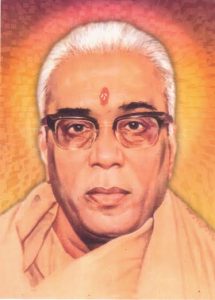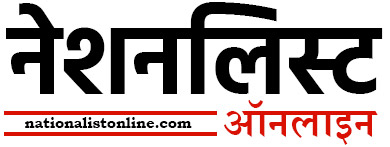VIJAY CHAUTHAIWALE
The quarter-century from 1971 to 1996 witnessed some of the most transformation events in Indian
history that changed the socio-political discourse and led to a tectonic shift in the Indian polity. It began with war against Pakistan and ended with Atal Behari Vajpayee becoming Prime Minister. It saw the best and worst of Indira Gandhi’s leadership in a span of four years (from the 1971 war to the 1975 Emergency), the Janata Party’s rise and fall, the extremism in Punjab, mass conversion of dalits to Islam in nakshipuram, Indira Gandhi’s tragic assassination, the peak of appeasement politics, rising Pakistani-sponsored jihadi terrorism, the BJP’s emergence as a strong alternative to the Congress — to list just a few. It also witnessed some of the most prominent social movements and unrest in post-Independence India like the agitation against the Emergency, the Assam agitation against illegal infiltration from Bangladesh, anti-reservation protests and, biggest of all, the Ram Janmabhoomi movement.
This period also saw the emergence of the Rashtriya Swayamsevak Sangh under the leadership of Madhukar Dattatraya Deoras, better known as Balasaheb Deoras, as a strong nationalist force. He became RSS chief, its third “sarsanghchalak”, in 1973, relinquished his post in 1993 and died just after Mr Vajpayee was sworn in as Prime Minister in 1996.
The first critical test of Deoras’ leadership was the imposition of Emergency and the ban on the RSS. He himself, along with 30,000 other Indians, were held under the Maintenance of Internal Security Act and 75,000 others were detained under the Defence of India Rules. He not only kept the morale of his cadre high in this crisis but also secretly guided the largest non-violent satyagraha movement in Independent India. When Indira Gandhi finally announced the elections in 1977, she knew well that the RSS was the only force that could quickly reassemble and help the Janata Party to victory. Therefore, she approached Deoras with an olive branch to withdraw the ban on the RSS if it did not support the Janata Party. But Deoras firmly declined, and the rest is history. However, after the Emergency, when Y.B. Chavan appealed for “forgive and forget”, Deoras was the first to back him, saying that an atmosphere of vindictiveness was detrimental to the nation, despite the fact that the RSS swayamsevaks had suffered the most during the Emergency.
Indira Gandhi’s second innings was full of turmoil. The RSS, under Deoras’ leadership, developed a multi-pronged strategy to face these challenges. The RSS worked tirelessly in Punjab to defeat the primary aim of extremists; to create animosity between Hindus and Sikhs. One pracharak from each state was sent to Punjab. The RSS did everything it could to keep Hindu-Sikh harmony despite murderous attacks on several RSS workers and even a direct attack on a RSS shakha. Deoras himself had a long ting with Sant Harchand Singh Longowal. The RSS was also instrumental in taking the message of the Assam agitation to every corner of India. It held thousands of corner tings and distributed literature on the dangers on illegal infiltration from Bangladesh. In response to the mass conversation of dalits to Islam in nakshipuram, the historic “Ekatmata Yatra” was taken out by the VHP. Three yatras, two from north to south and one from east to west, along with thousands of small yatras across the country, touched 1.5 lakh villages and almost all districts in the country. In the Ram Janmabhoomi agitation, of course, the RSS had played a pivotal role.
Deoras was a great champion of social equality and harmony. Immediately after becoming RSS chief, he gave a seminal speech in Pune in 1974, in which he said: “If untouchability is not wrong, nothing is wrong.” But he didn’t just confine himself to talking. He was strong proponent of reservations for dalits and Scheduled Tribes. At the peak of the anti-quota protests, when the issue was being hotly debated in a RSS conclave, he intervened: “Put yourself in a role of a dalit and then discuss if reservations are required or not.” Needless to say, the RSS decided in favour of continued reservations. On the Meenakshipuram conversion, he stressed that instead of blaming petro-dollars, all Hindus should come together to get rid of social inequality.
He personally visited, encouraged and helped several projects for the poorer sections of society in the remotest part of the country. He shared the dais with two prominent dalit leaders of his time, R.S. Gawai and Rajabhau Khobragade, who were chief guests at RSS programmes at Nagpur in 1981 and 1983. During the birth centenary of RSS founder Dr Hedgewar in 1989, he announced that the RSS would launch over 1,000 projects for the poor and needy in a year.
Deoras was an exceptionally good team player, consensus builder and experimenter. When he became RSS chief, some raised questions about his ability to lead, mainly due to his health (he was already diabetic in 1973), but he said in his first speech that he had a team of workers whom even God would envy. He was the first RSS chief to relinquish the post (1993) as soon as he realised his health was sinking.
He tried his utmost to ensure the success of the Janata Party experiment, despite its inherent contradictions. He stayed in constant touch with Jayaprakash Narayan, Morarji Desai and Chandra Shekhar. He was even willing at first to keep a distance between active RSS workers and Janata officials, but the RSS later retracted from this when it realised it was seen as the Sangh’s weakness by those bent on splitting the Janata Party. After the Janata government collapsed, Mr Vajpayee publicly suggested that the RSS use the word “Bharatiya” rather than “Hindu”. Deoras replied saying there was nothing wrong in the word “Bharatiya”, but there was nothing inferior about “Hindu” either. He gave Mr Vajpayee the freedom to build the BJP on the principle of “Gandhian socialism”, and after the BJP’s sorry performance in 1984, he walked the extra mile to bridge the distance between the RSS and the BJP, and reinforced the BJP with many RSS workers.
Thanks to the Emergency, Socialist leaders like S.M. Joshi, G.P. Pradhan and Bhai Vaidya and Jamait-e-Islami leaders became his good friends and their friendship continued till the end. Achyutrao Patwardhan described the RSS as “Ready for Selfless Service”. Deoras even met Imam Bukhari of Jama Masjid after the Emergency.
He had strong political instincts. But he was also aware of the limitations of politics. More than politics, he strived for Hindu consolidation, social equality and harmony in one of the most crucial period of post-Independence Indian history. In this year of his birth centenary, it is imperative to remember the contribution of this great but not so well-recognised leader
(The writer is in charge of the BJP’s foreign affairs department)
